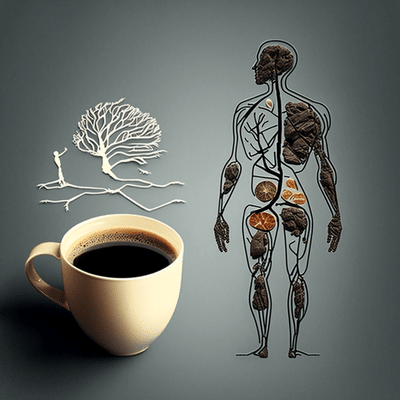Does Coffee Have Antioxidants?
Coffee has been a cherished beverage throughout history, enjoyed daily by millions of people across the globe. With such widespread consumption, understanding the nutritional properties of coffee and their potential impact on health becomes increasingly important. This comprehensive essay will explore the presence of antioxidants in coffee, delving into their potential health benefits and risks associated with consumption.

What are antioxidants?
Antioxidants are molecules that play a crucial role in neutralizing free radicals, unstable molecules that can damage cells and contribute to aging and diseases. In essence, antioxidants protect cells from oxidative stress, which can lead to various health issues such as heart disease, cancer, and neurodegenerative diseases. The human body naturally produces some antioxidants, but they can also be obtained through dietary sources, including fruits, vegetables, and beverages like coffee.
Antioxidants in coffee

Coffee is a rich source of antioxidants, with a variety of compounds found in different amounts depending on factors such as the coffee bean variety, roasting process, and brewing methods. Some of the most common antioxidants found in coffee include:
- Chlorogenic acid: A significant antioxidant found in coffee, chlorogenic acid has been linked to improved blood sugar control, reduced inflammation, and potential weight loss benefits. This antioxidant is primarily found in green coffee beans but can also be present in roasted beans, albeit in smaller amounts.
- Melanoidins: These compounds are formed during the roasting process and contribute to the color and flavor of coffee. Melanoidins may help protect against DNA damage and inflammation while also exhibiting antimicrobial and antioxidant properties.
- Cafestol and kahweol: These diterpene antioxidants are found in unfiltered coffee, such as Turkish or French press coffee, and may have anti-inflammatory and anti-cancer properties. Some research suggests that they may also help protect the liver and promote healthy cholesterol levels.
The roasting process plays a crucial role in determining the antioxidant content of coffee. Some antioxidants are lost during high-temperature roasting, while others are created or enhanced. Lighter roasts tend to have higher levels of chlorogenic acid, while darker roasts have more melanoidins. Brewing methods also impact antioxidant levels, with methods like espresso extraction and French press preserving more antioxidants than drip coffee or instant coffee.
Health benefits of coffee antioxidants
The antioxidants in coffee may offer a range of health benefits, some of which are outlined below:

- Protection against neurodegenerative diseases: Research has suggested that coffee consumption may be associated with a lower risk of Alzheimer’s and Parkinson’s diseases. This could be due to the antioxidative effects of compounds found in coffee, which help protect brain cells from damage. Coffee and brain health are closely linked, and although the exact mechanisms are not yet fully understood, continued research in this area could yield valuable insights.
- Cardiovascular health: Antioxidants in coffee may help reduce inflammation, a key factor in the development of heart disease. Improved endothelial function, which is essential for maintaining healthy blood vessels, is also associated with coffee consumption. Additionally, coffee antioxidants may help prevent the oxidation of LDL cholesterol, thereby reducing the risk of atherosclerosis.
- Reduced risk of certain types of cancer: Coffee’s antioxidant content may contribute to a lower risk of specific cancers, such as liver and colorectal cancers. Studies have found that individuals who consume coffee regularly have a reduced risk of developing these cancers, possibly due to the anti-inflammatory and antioxidative properties of coffee compounds.
- Type 2 diabetes prevention: Some research has suggested that regular coffee consumption can lower the risk of developing type 2 diabetes. This may be due in part to the presence of chlorogenic acid, which can improve glucose metabolism and insulin sensitivity.
- Liver health: Coffee antioxidants may help protect the liver from damage caused by toxins and oxidative stress. Studies have shown that regular coffee drinkers have a reduced risk of liver cirrhosis and other liver diseases.
- Improved cognitive function and mood: Coffee’s antioxidant properties, combined with its caffeine content, may contribute to enhanced cognitive function and improved mood. Studies have found that moderate coffee consumption can improve alertness, concentration, and even memory.
Limitations
- Individual differences: Metabolism and response to coffee antioxidants can vary between individuals. Genetic factors, age, lifestyle choices, and even gut microbiome composition can all influence the health benefits derived from coffee consumption. It is essential to recognize that what might be beneficial for one person may not be the same for another.
- Excessive consumption risks: Overconsumption of coffee may have negative effects, such as increasing the risk of heart disease in some individuals, especially those who are sensitive to caffeine. Additionally, excessive coffee intake can lead to digestive issues, sleep disturbances, and anxiety. It is crucial to balance coffee intake with potential risks and listen to one’s body.
- Pregnancy and caffeine: Pregnant women should limit their caffeine intake, as excessive consumption can be harmful to the developing fetus. High caffeine levels during pregnancy are associated with an increased risk of miscarriage, preterm birth, low birth weight, and developmental delays. Consult a healthcare provider for personalized recommendations on caffeine consumption during pregnancy.
- Interaction with medications: Coffee antioxidants may interact with certain medications, affecting their absorption or metabolism. For example, coffee can interfere with the absorption of iron supplements, while caffeine can interact with medications for asthma, depression, or heart conditions. Always consult a healthcare professional if you have concerns about potential interactions between coffee and medications.
Understanding these limitations is crucial for making informed decisions about coffee consumption and ensuring that you can enjoy its antioxidant benefits without compromising your health.
Conclusion
In conclusion, coffee contains a substantial amount of antioxidants that may offer various health benefits, such as protection against neurodegenerative diseases, improved cardiovascular health, reduced risk of certain cancers, and better cognitive function. However, it is vital to acknowledge the potential risks and limitations associated with coffee consumption, including the importance of moderation and individual differences in metabolism and response.
Given the widespread popularity of coffee, it is crucial for individuals to make informed decisions about their coffee consumption habits. Considering individual preferences and health needs is essential when deciding on the quantity and type of coffee to consume. For more information on the health benefits of coffee, visit The Health Benefits of Coffee
As research on coffee and its antioxidant properties continues to evolve, our understanding of the complex relationship between coffee consumption and health will undoubtedly expand. For now, coffee drinkers can enjoy their daily cup, knowing that it may offer health benefits alongside its invigorating taste and aroma.







